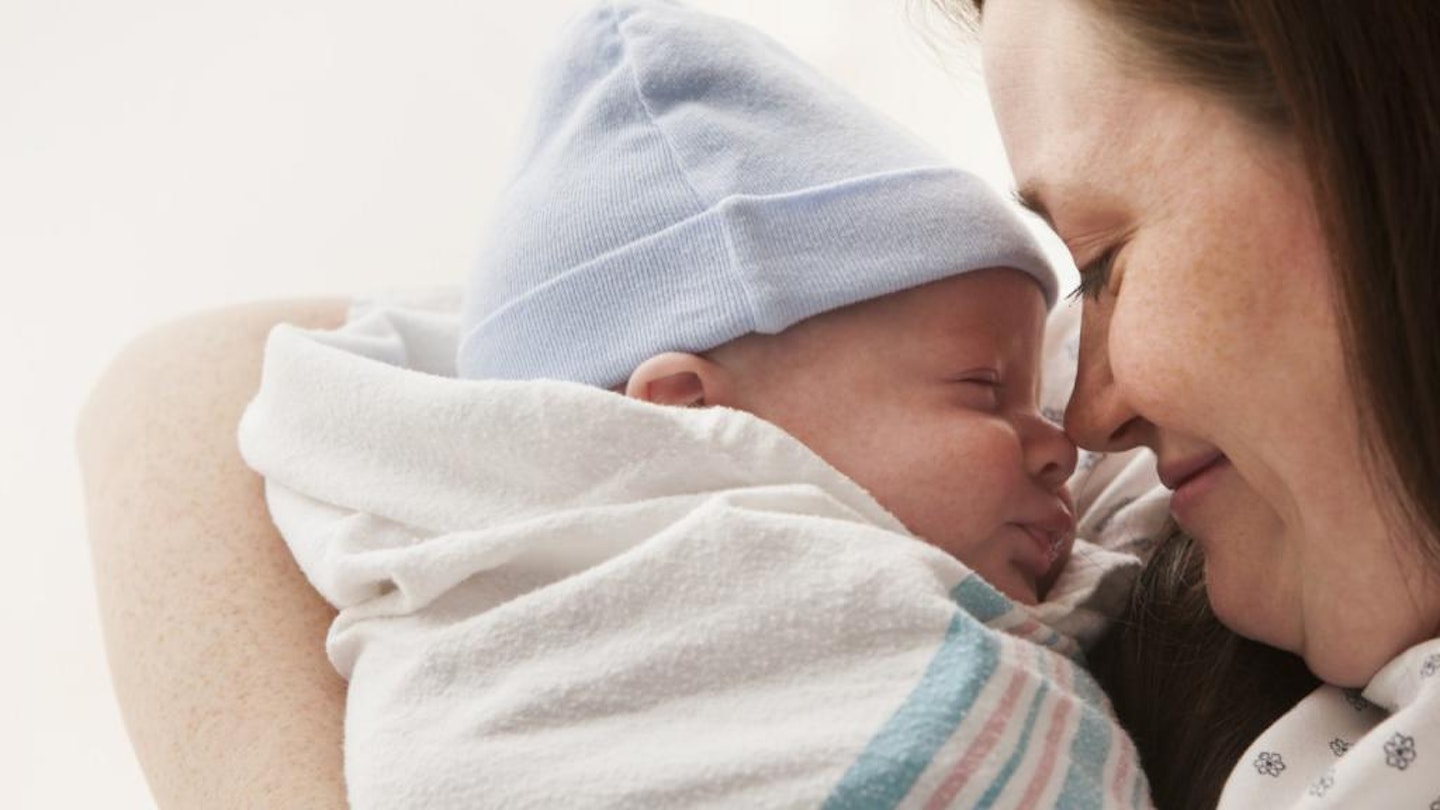Your newborn baby’s health will be checked immediately after birth. It’s hard to hand your precious baby over so soon after birth, but it’s a lot easier if you understand exactly what’s going on. From their apgar test to their baby hearing test, this is what the professionals are doing during your baby's first hospital tests and check-ups...
Why does your newborn have a check-up after birth?
In the moments after delivery, your newborn will be the centre of attention, not only for you and your partner but for the midwives and doctors too. They will carry out a series of routine tests to ensure that your baby is healthy, and further checks will be performed in the maternity ward. The NHS explains that "The aim is to spot any problems early so treatment can be started as soon as possible". It is strongly recommended that you allow your baby to be checked but it is not compulsory. You can decide whether your baby is examined for all or some of the conditions.
The Apgar score: What is it?
The first test your baby will have is the Apgar score, which a midwife will do straight after birth. Apgar stands for Appearance, Pulse, Grimace, Activity, Respiration. Its purpose is to quickly evaluate your baby’s physical condition and to see if she needs any extra care.
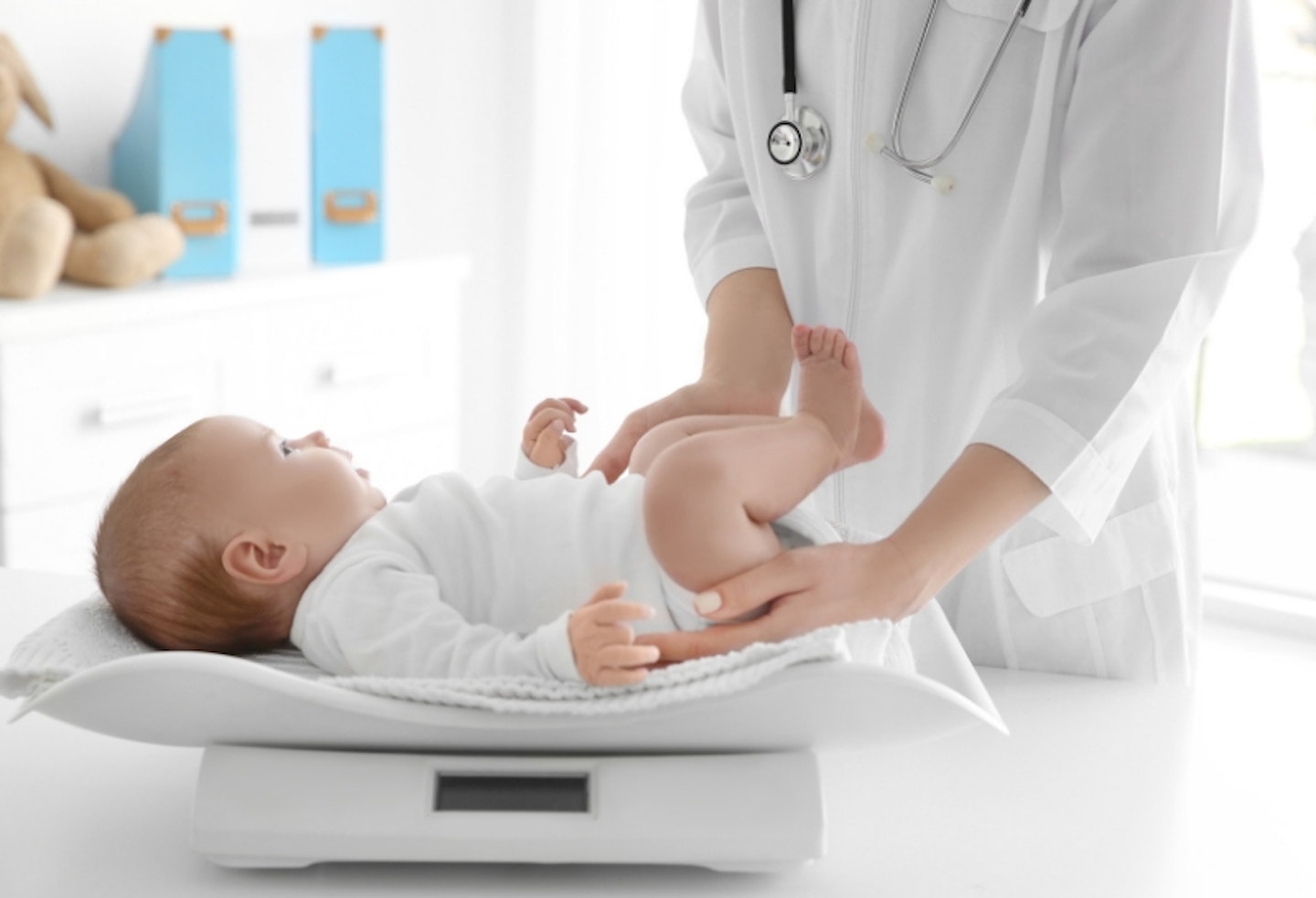
Your midwife or doctor will give your baby the Apgar score twice, the first at one minute after the birth, then at five minutes after the birth.
The Apgar score checks your baby’s heartbeat, breathing, muscle tone, reflexes and skin colour. A score of 0, 1 or 2 will be given for each check, with a total of 10. A normal score is seven or over.
A score of 0, 1 or 2 will be given for each check, with a total of 10
If your baby has a low first score – for instance, if she’s been affected by pethidine (a sedative and muscle relaxant which helps you deal with contractions) – but a normal second score, this is counted as normal.
Your baby will also be weighed, the fontanelle (the soft spot on the top of her head) checked, and her head circumference and body length measured and looked over for any obvious abnormalities or bruising that may have occurred during the birth.
Your newborn’s first physical examination and tests
Within her first 24 hours, your baby will have a complete physical check-up covering everything from their newborn reflexes to their hearing. If you give birth in the hospital this will be done by a doctor or paediatrician. If you have a home birth, it will be carried out by your midwife or GP. The examination will include:
newborn health tests and check ups
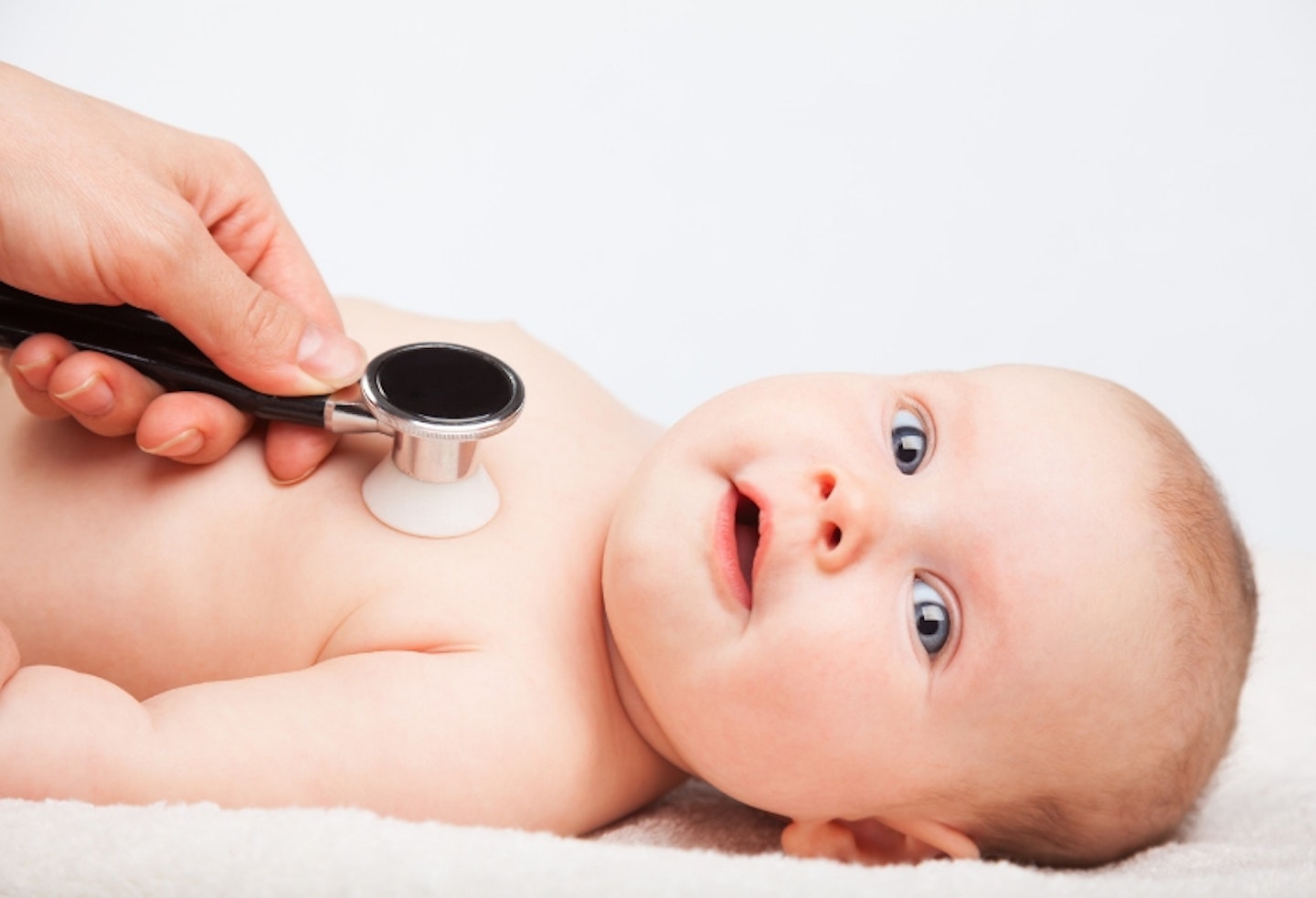 1 of 13
1 of 131) Heart and lungs
In the minutes after your baby's arrival, your midwife will monitor your baby’s breathing pattern and check their heart with a stethoscope. In addition, their lungs will be checked to make sure they are clear of fluid and working. In the first few days, your baby’s pattern of circulation undergoes a major change, so irregularities are not uncommon.
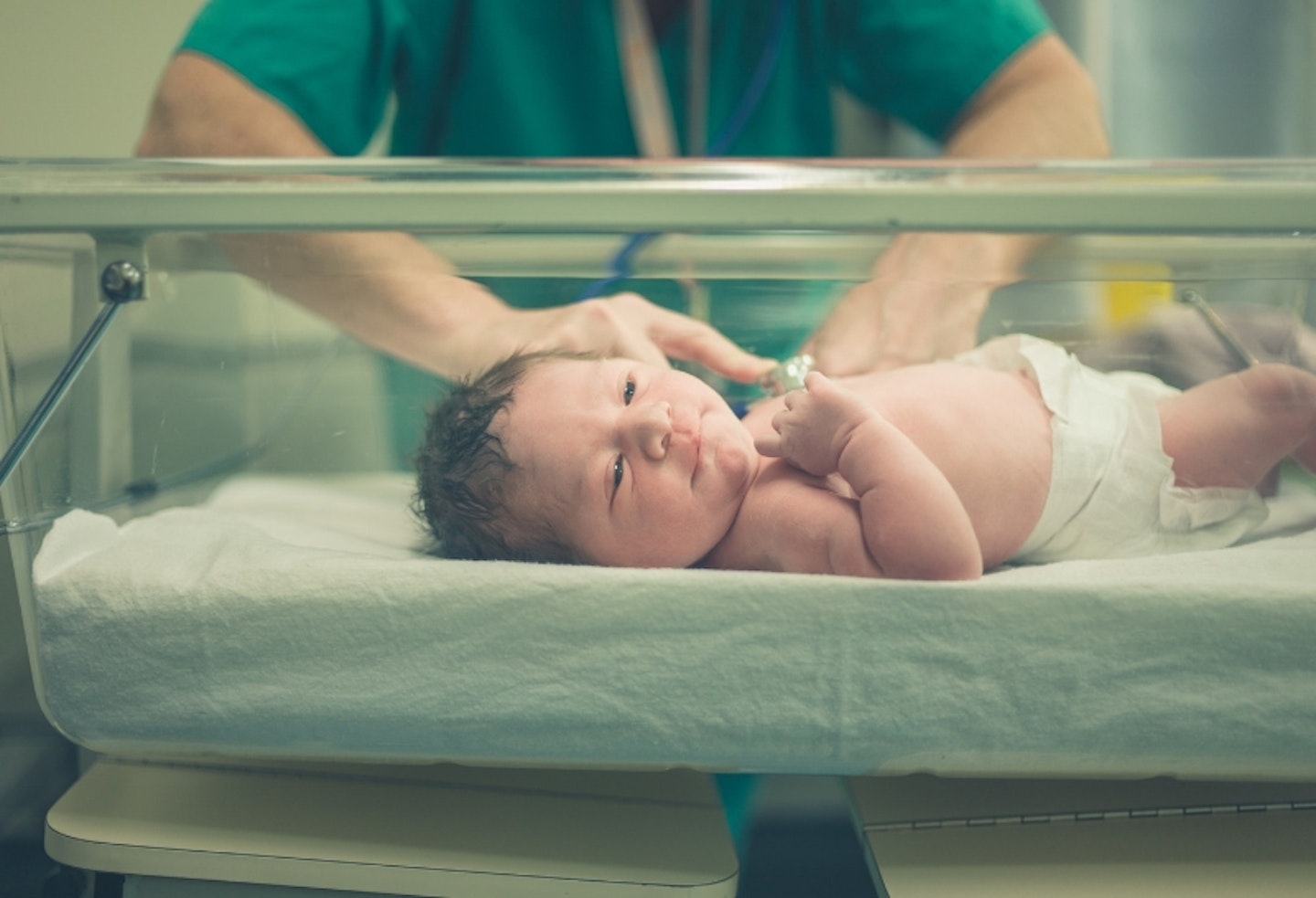 2 of 13
2 of 132) Abdomen
The doctor will feel your baby’s tummy to check her kidneys, liver and spleen are in the right place and are the correct size.
 3 of 13
3 of 133) Ears and mouth
The doctor will feel inside your baby’s mouth to make sure she does not have a cleft palate and inside her ears to check for any abnormal discharge.
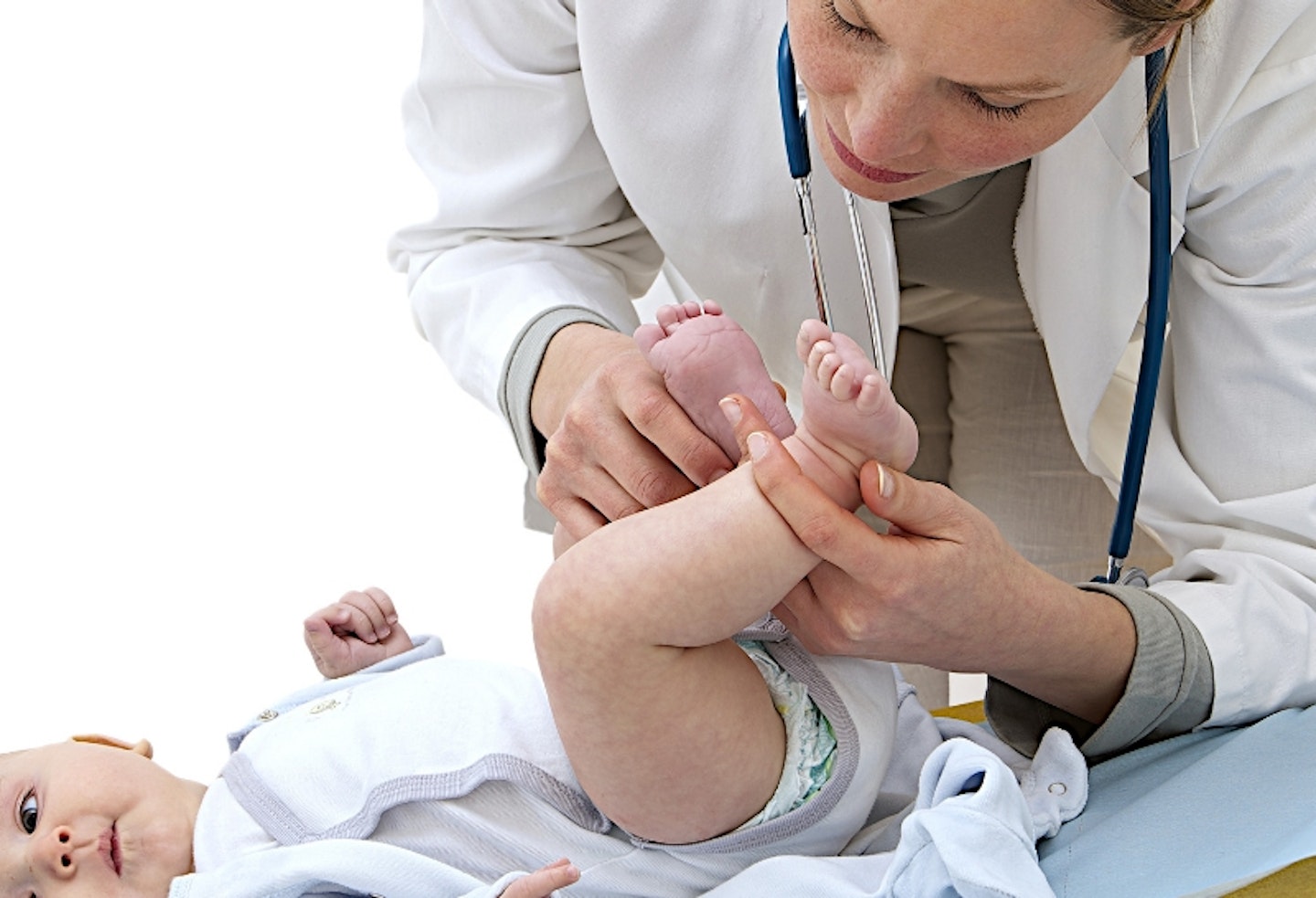 4 of 13
4 of 134) Clicky hips
Your baby’s legs will be rotated to check for ‘clicky’ hips. The doctor will push your baby’s knees up to her chest and then drop them down before opening them out into a frog-like shape. If the hip is dislocated, the doctor will feel a clunk or jerk. Congenital hip dislocation, if detected early, can be successfully treated.
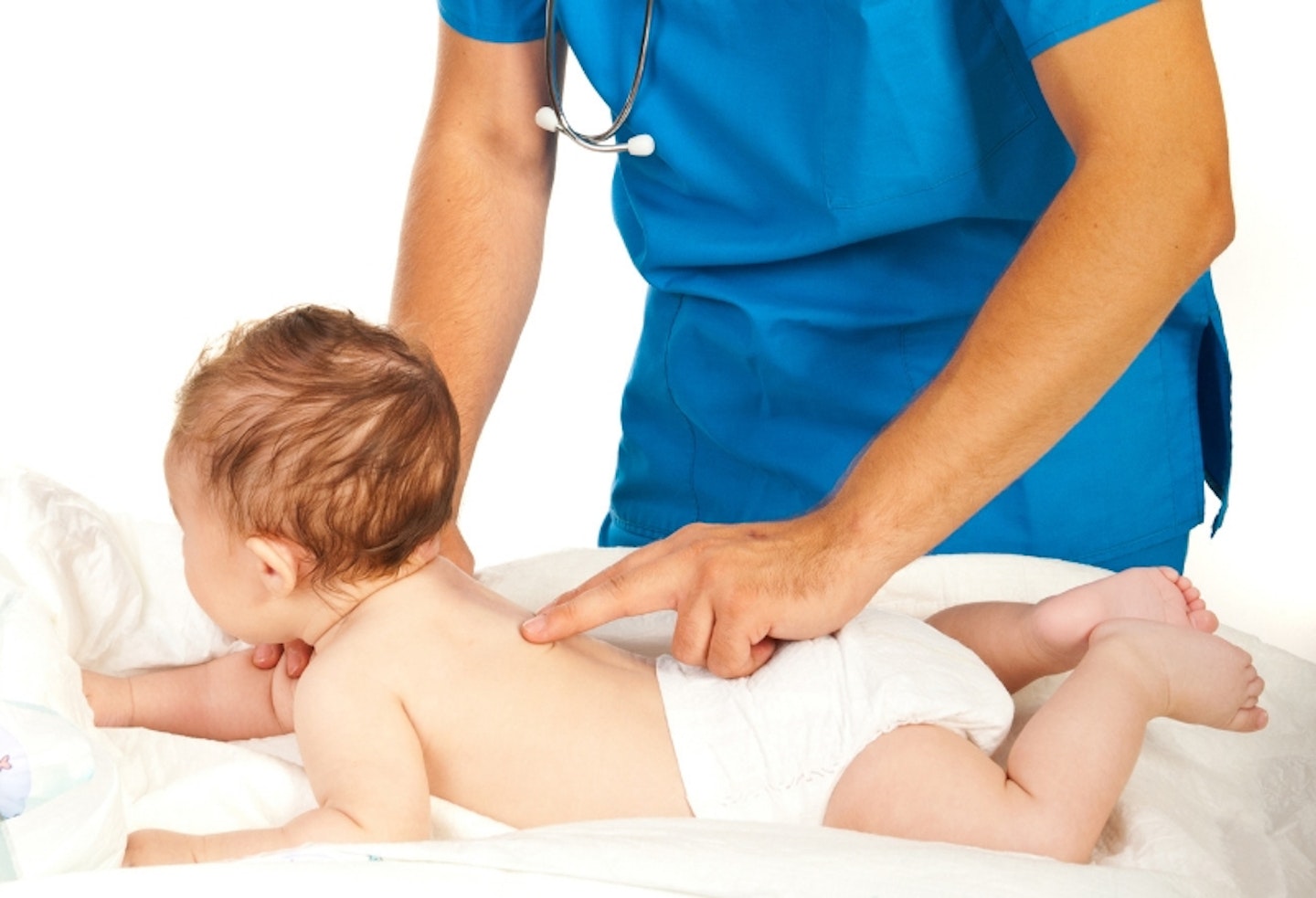 5 of 13
5 of 135) Spine
The doctor will check for signs of spina bifida, such as exposed spinal cord tissue.
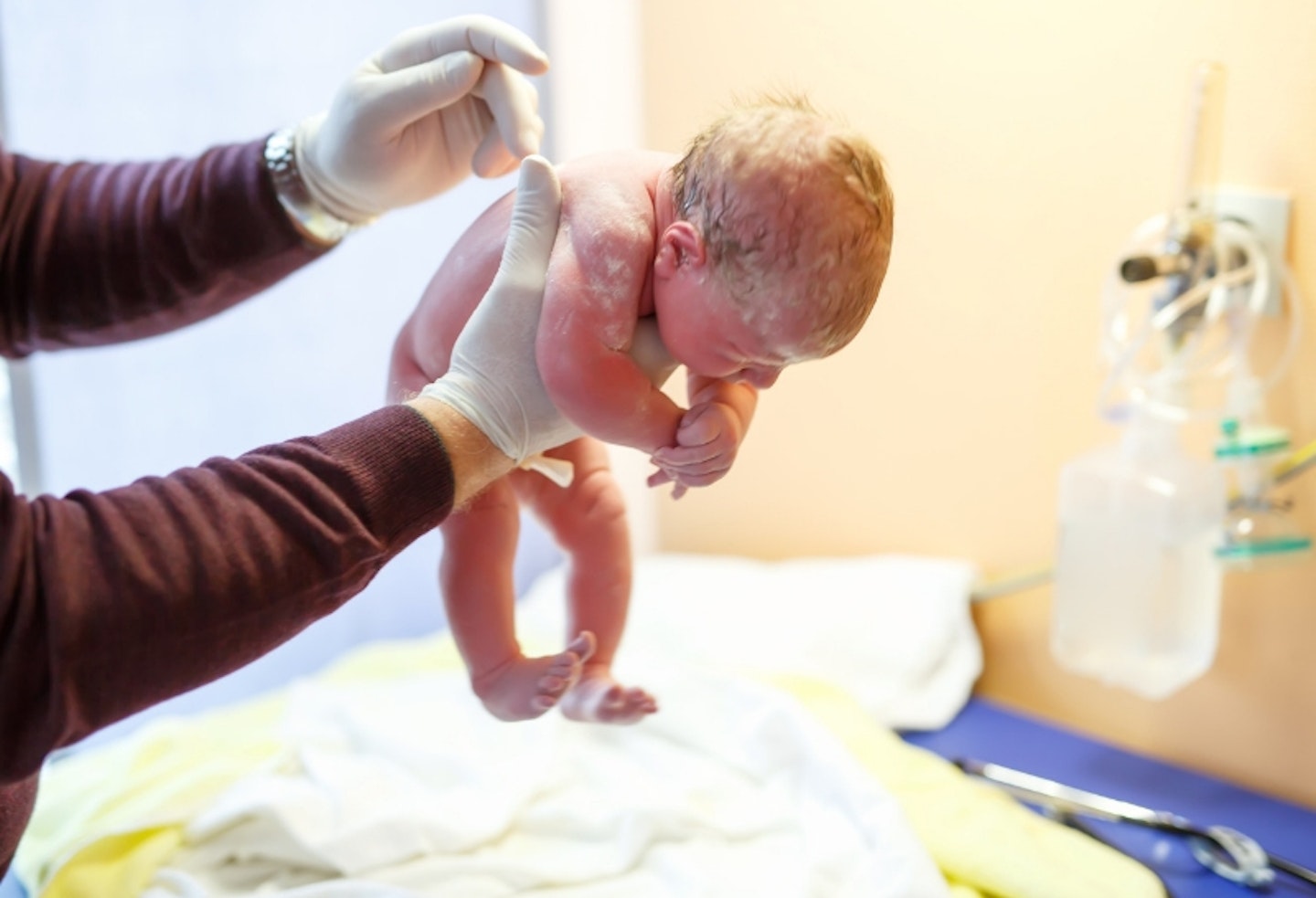 6 of 13
6 of 136) Genitals
A boy’s scrotum will be checked for undescended testes and his penis checked to ensure the opening is at the tip, not the underside. It is normal for a baby girl to have a white or slightly bloody vaginal discharge caused by exposure to maternal hormones. These hormones may also cause a baby boy’s genitals to swell, and are not a cause for concern.
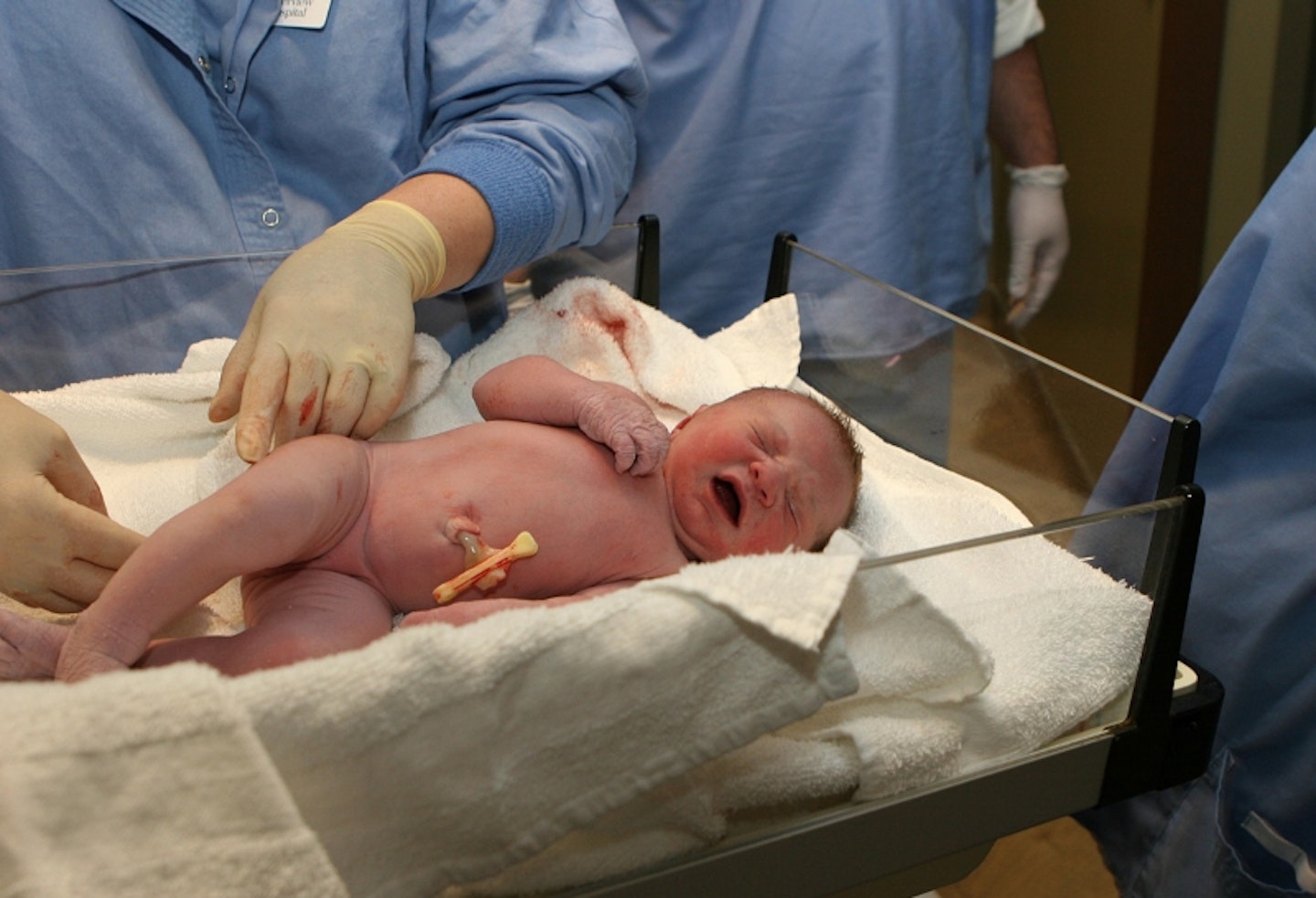 7 of 13
7 of 137) Back passage
This will be examined to make sure it’s open and you will be asked whether your baby has passed meconium yet.
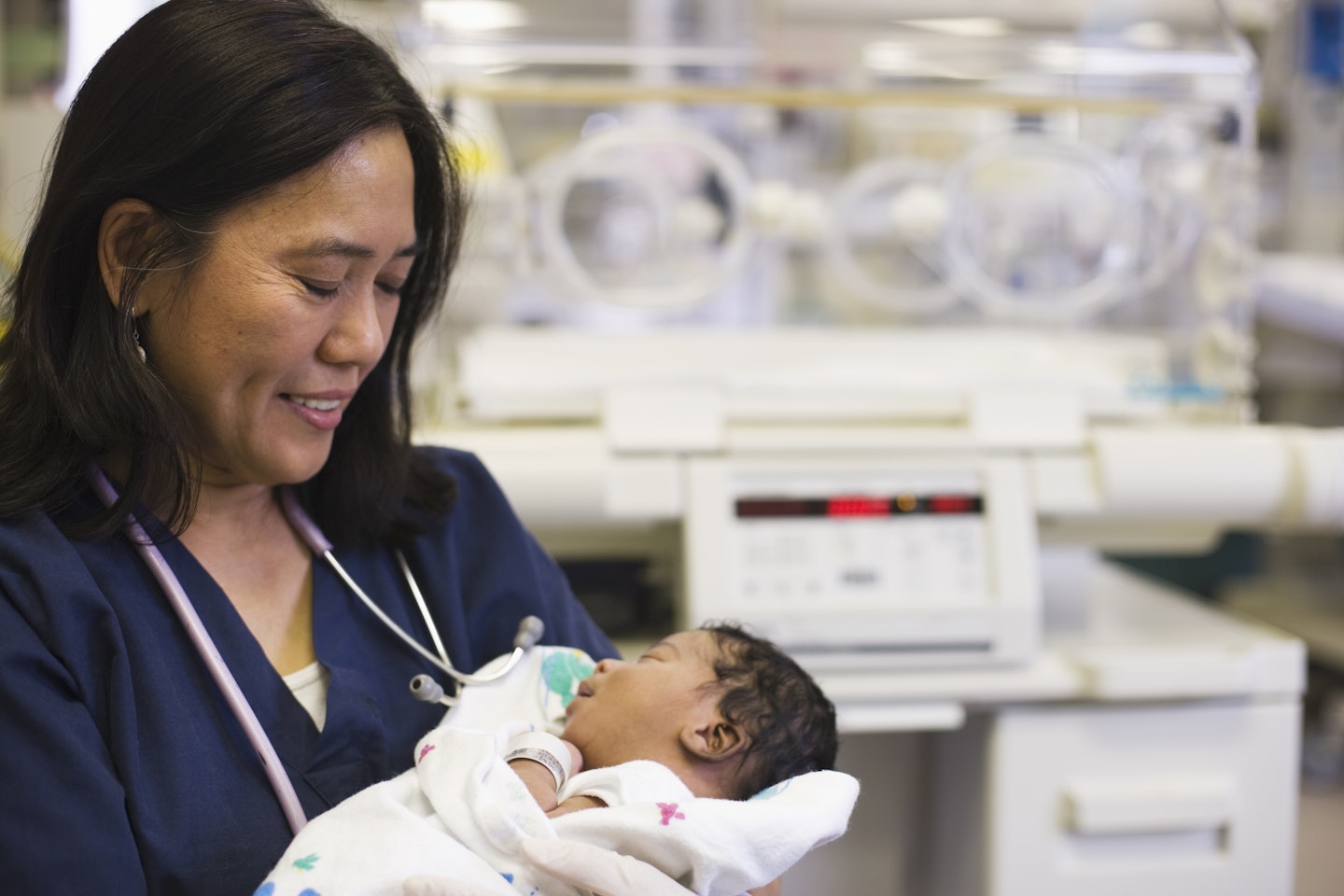 8 of 13
8 of 138) Physical features
These will be checked for signs of Down’s syndrome. If your doctor or midwife is dissatisfied with the results of any of the checks done, further tests may be carried out or you may be referred to an expert in the field.
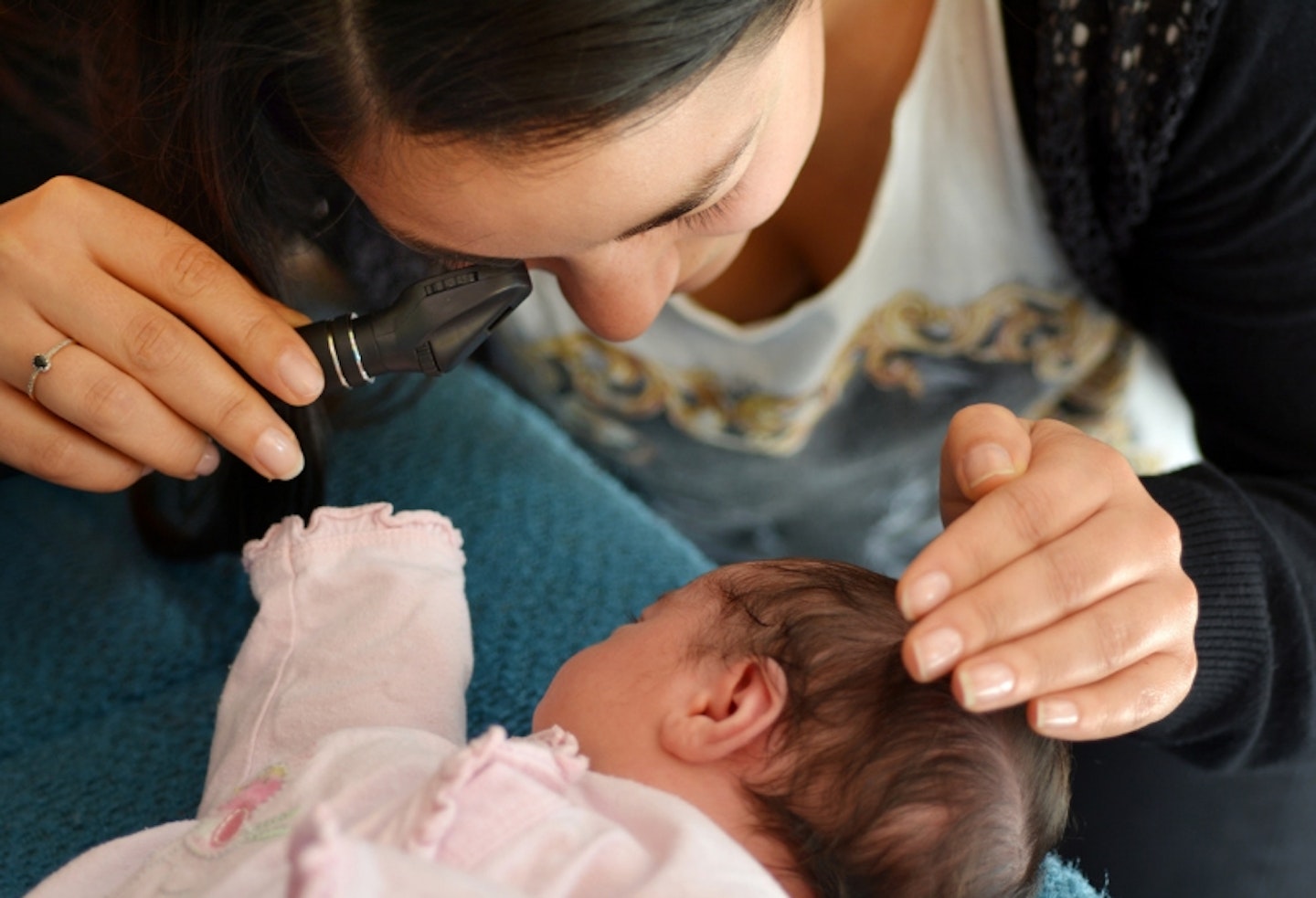 9 of 13
9 of 139) Eye test
A midwife or doctor will visually check the appearance and position of your baby’s eyes. A light from an ophthalmoscope will be shone into her eyes to check for ‘red reflex’. This is the red/orange reflection from the retina. Any problems such as cataracts, ophthalmic infection or cross-eyes will be picked up during this examination.
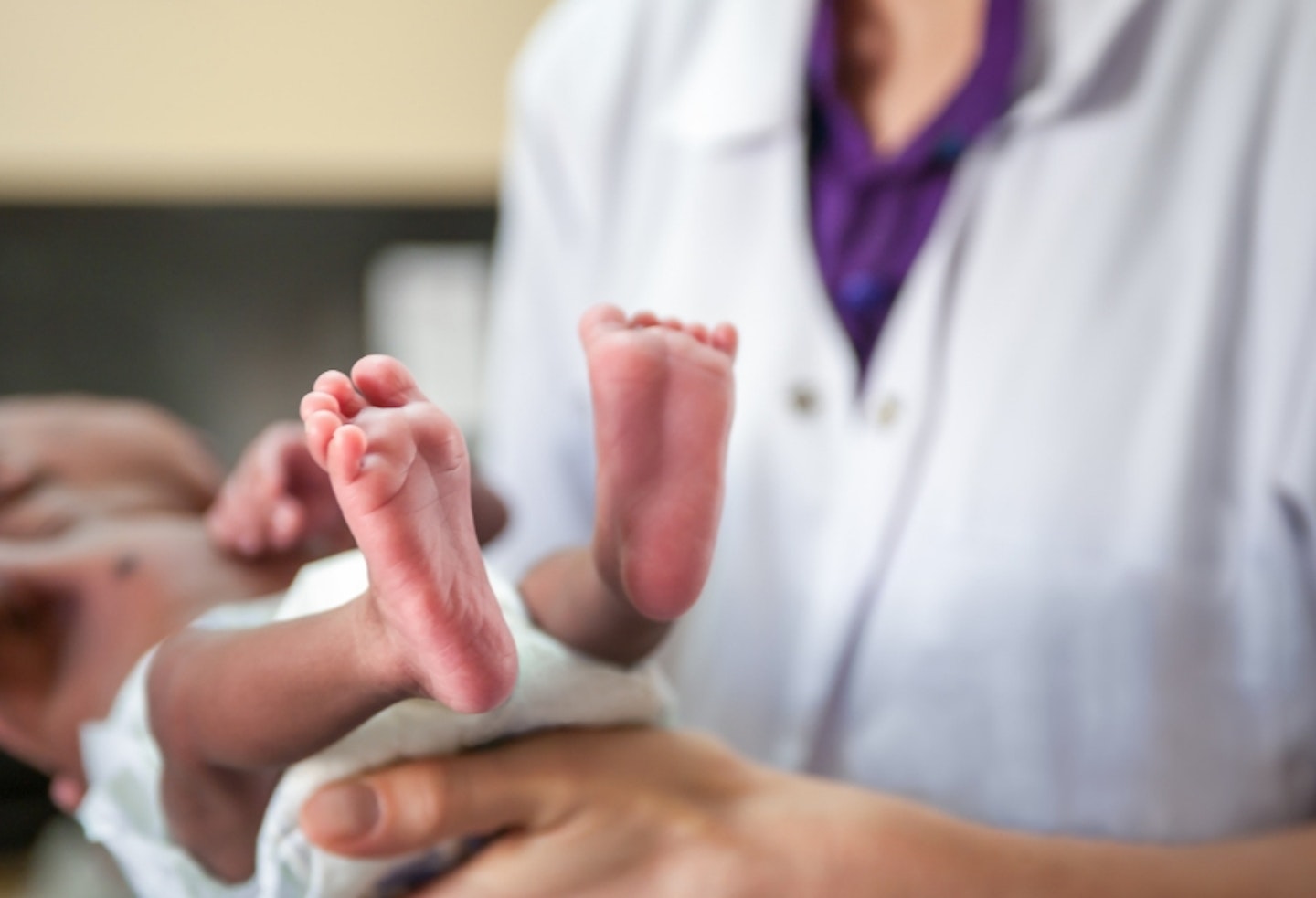 10 of 13
10 of 1310) Reflexes
A baby’s reflexes include grasping, sucking and swallowing. The midwife will test her sucking reflex by placing a gloved finger in her mouth. The most tested reflex is the Moro reflex when a midwife gently allows your baby’s head to fall a short distance. Your baby should fling out both arms with fingers spread and stretch her legs.
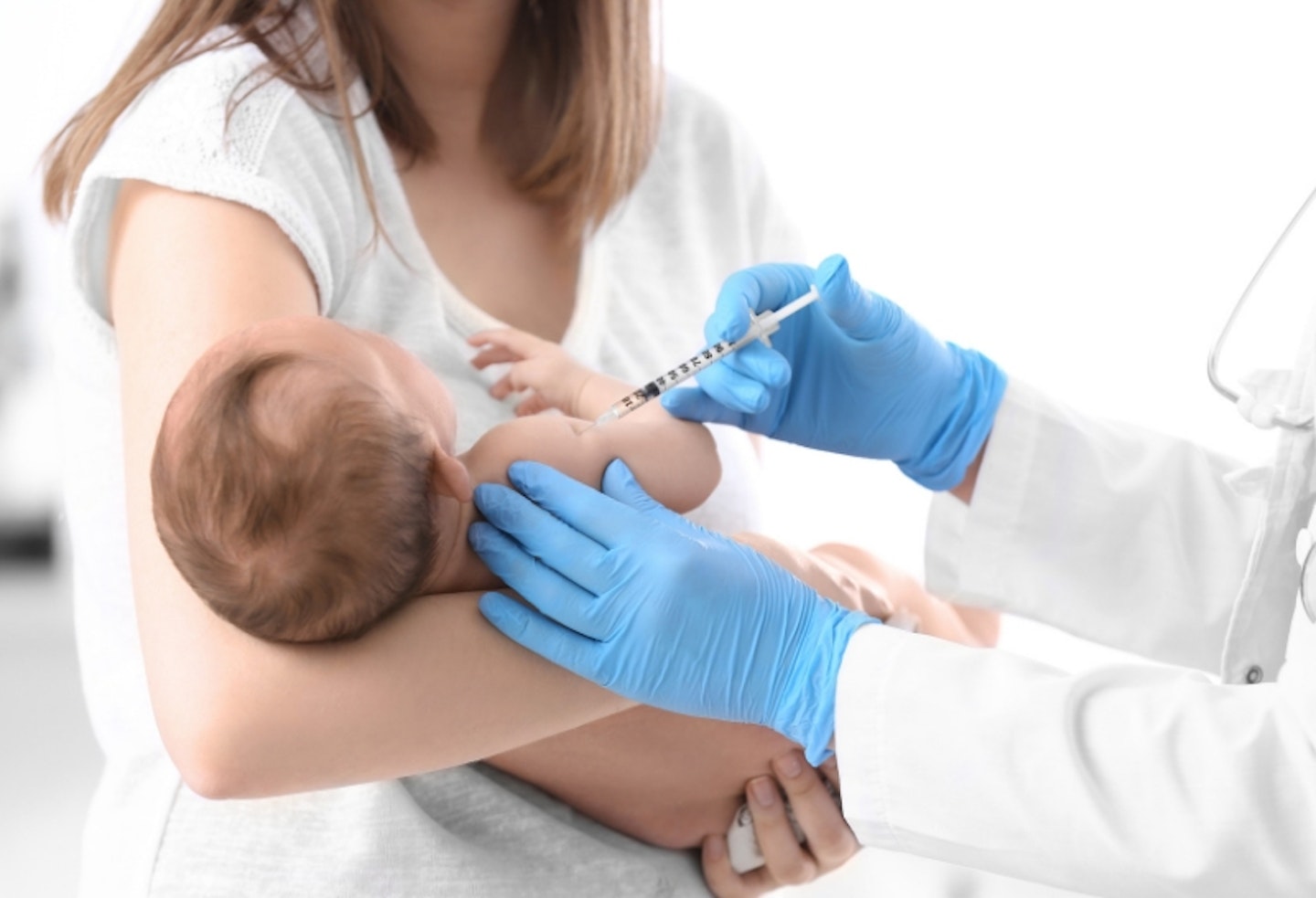 11 of 13
11 of 1311) Vitamin K
Vitamin K is vital to make blood clot properly and stem bleeding. Many babies are born with very little of this nutrient in reserve, which can result in dangerous internal bleeding. Your newborn will be offered an injection of this nutrient. If you would prefer your baby not to have an injection, an oral dose given in the mouth is available.
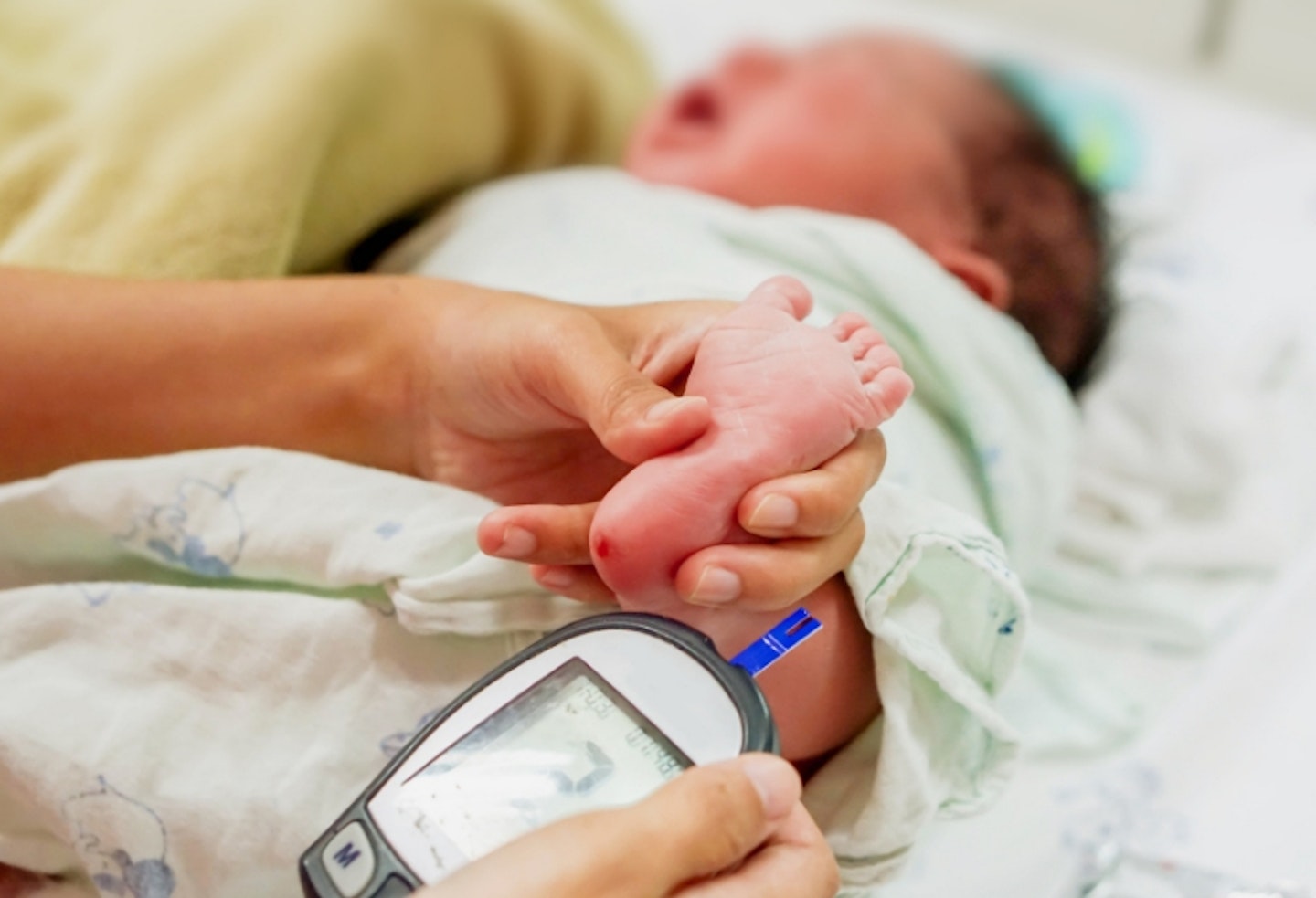 12 of 13
12 of 1312) Heel prick
When: five to eight days after birth. This may be described by your midwife as the Newborn Screening Test. She will collect a tiny blood sample from your baby’s heel (this does not hurt) and check it for several rare but potentially serious genetic conditions. These include cystic fibrosis, hypothyroidism and phenylketonuria PKU.
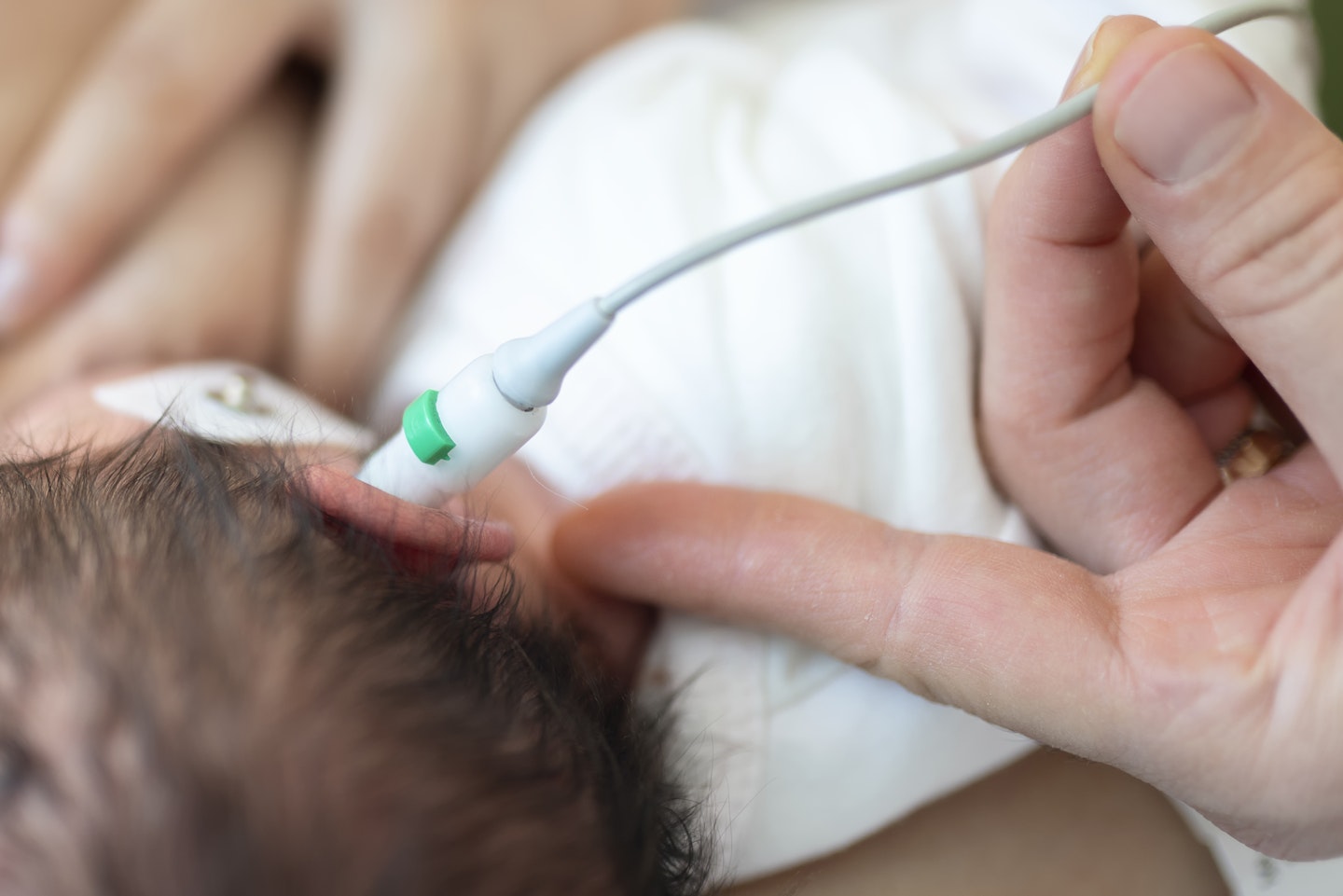 13 of 13
13 of 1313) Baby hearing test
If your baby was born in hospital, you might be offered a baby hearing test before you get discharged. Otherwise, your health visitor will carry out the test in the weeks following their birth.
When do I get the results of the newborn tests?
The NHS explains that "The health professional carrying out the examination will give you the results straight away. If your baby needs to be referred for more tests, they'll discuss this with you there and then, too". However, most babies pass these tests easily. If there are problems, most usually resolve themselves in the coming weeks without treatment. Your GP or midwife will give you more advice if a problem is found.
If your baby is healthy, her next screening will be the 6-8 week check when several of these tests are repeated. All results will be noted down in your baby's child health record, sometimes known as the red book. You have to keep this safe at all times so you can show it to health professional on visits.
